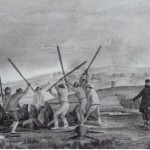
“Convicts, Indigenous People and Labour”
A few weeks ago the Carceral Archipelago team of postgraduates presented at the University of Leicester’s annual postgraduate conference. The theme of the Carceral Archipelago panel was “Convicts, Indigenous People and Labour”. The project’s three postgraduate students – Kellie Moss, Katy Roscoe and Carrie Crockett – presented three papers that ranged from Western Australia to […]
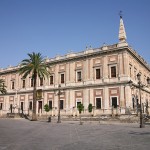
On multi-sited research and mono-sited (nationalist) memory
Addressing convict transportation –the key feature in the Carceral Archipelago project – implies multi-sited research, that is, research in archives located in different places (and countries/continents). Indeed, as convicts were transported from site to site within and beyond the borders of empires and nation-states, they left traces in official records presently held in repositories across […]
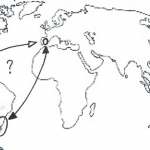
Comparisons and Connections (part 1)
In her last blog (https://staffblogs.le.ac.uk/carchipelago/2015/02/05/the-politics-of-comparison-writing-a-global-history-of-punishment/), Clare Anderson points to the challenges the Carceral Archipelago Project faces in writing the history of punishment as global history. Indeed, addressing the singularity of each site and connection of convict transportation and proposing broader interpretations is a complex task, which requires a high degree of self-reflexivity regarding our methodological […]
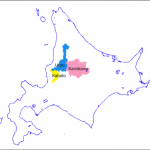
Awful Things Began to Happen: Rapid Change of Ainu Homeland and Convict Labour as Seen by the Ainu, By Minako Sakata
The Kamikawa region is one of areas that today still has relatively a large population of the Ainu. It is also the site of the most famous land dispute between the Hokkaido Government and the Ainu in the early 20th century. The Hokkaido Aborigines Protection Act of 1899, containing some restrictions and leading to many […]
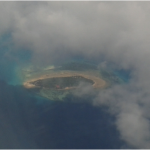
Zanzibar’s Prison Island: The Prison That Never Was, by Sarah Longair
My initial research on peculiar history of Zanzibar’s so-called Prison Island as part of the Carceral Archipelago project began last year delving into the records in the National Archives and the British Library. Relying on Foreign Office correspondence, I was able to piece together some of the original documents of the construction of prison buildings […]
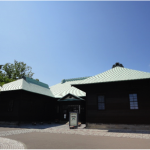
Town Commemorates Convicts, by Minako Sakata
At the end of August, I visited Tsukigata, a small town in Hokkaido where the Kabato Central Prison was located from 1881 to 1919. The town was established in the year when the prison opened, and named after its first director, Kiyoshi Tsukigata. This town has unique sites that show the history of Hokkaido as […]
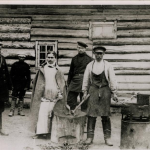
The Carceral Archipelago panel at the Fourth European Congress on World and Global History, 4-7 September, 2014
During the first week of September, members of our European Research Council funded project, Carceral Archipelago, attended the Fourth European Congress on World and Global History, held in Paris at the École Normale Supérieure. While at the Congress, a number of the project’s researchers had the exhilarating opportunity of presenting aspects of their research on a shared […]

Reconsidering Southern African Studies from the Indian Ocean
“Reconsidering Southern African Studies from the Indian Ocean.” This challenge underpinned two wonderful days of discussion at the University of the Western Cape last week. As a conference, we wanted to explore what the burgeoning Indian Ocean historiography and literature means for southern African studies; including how land and sea might come together, in our […]
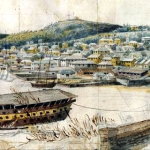
The Convict Hulks of Bermuda
I have long been interested in Bermuda. Like the island that I studied for my PhD thesis, Mauritius, it has no indigenous population. It was settled during the age of European expansion, and developed using indentured servants from Europe and African slaves. In Mauritius the call for a new form of unfree labour in the […]
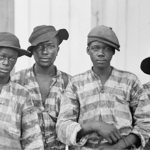
“What Is History For?” Thinking about forced migration and its aftermath
Three days of incredible discussions at NYU Abu Dhabi. “How Migration Makes Meaning” brought together a small group of historians, anthropologists, writers, curators, and creative practitioners of film and photography, to discuss the convergences and coalescences of movement, mobility and circulation around and across the Atlantic and Indian Ocean worlds. Our interdisciplinary focus reaped rich […]

Recent Comments